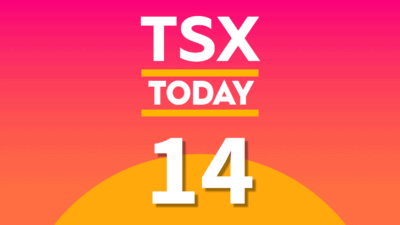This year has seen the continuation of a string of mergers and acquisitions after a record number undertaken by companies in 2016. Stock prices often respond with a renewed fervor as mergers and acquisitions often promise diversification, reduced operating costs, superior market penetration, and many other benefits.
The performance of shares of Hydro One Ltd. (TSX:H) and Metro, Inc. (TSX:MRU) has been muted following the multi-billion-dollar acquisitions reported by both companies in 2017. Is there a reason for the skepticism? What company is the better bet for investors moving forward? Let’s dive in to both and make a determination.
Hydro One Ltd.
Hydro One stock declined 1.07% on October 3, and as of close that day, it has seen a drop of 5.6% in 2017. On July 19, Hydro One signed a deal to acquire Avista Corp. for $6.7 billion, establishing a top 20 North American utility in the process. The combined companies possess over $32.2 billion in total assets. The deal gives Hydro One access to markets in Washington, Idaho, Oregon, Montana, and Alaska, and over 720,000 customers in these areas.
Hydro One intends to continue a dividend payout that makes up 70-80% of earnings. In order to satisfy the equity component of financing, Hydro One executed a bought deal of $1.4 billion convertible debentures. The company saw its stock price recover into the black on the same day of the deal. It currently boasts a dividend of $0.22 per share, representing a 3.9% dividend yield.
Metro, Inc.
Shares of Metro were down 1.96% at close on October 3. On October 2, the merger between Metro and drugstore chain Jean Coutu Group PJC was officially announced — it was worth a reported $4.5 billion. The possibility of a merger between the two had been rumoured for some time following the successful Loblaw Companies Ltd. deal with Shoppers Drug Mart. Shares of Loblaw have increased 50% since the March 21, 2014, merger announcement.
Metro shares spiked on September 27 as a deal was reportedly imminent, but they have since receded by 3.5%. The deal allows Metro to diversify as it fights off competition from the rise of Amazon.com, Inc. and other competitors. Jean Coutu is the second-largest pharmacy network in Quebec, and it will be operated as a separate division.
Which should you buy post-merger?
Grocery retailer stocks took a hit when Amazon scooped up Whole Foods Market, Inc. Metro released its third-quarter results on August 15, and sales were up 1.4%. The company posted net earnings of $183 million — up 3.7%. Metro has also expanded its online shopping offer to Quebec City after its initial launch in Montreal, demonstrating its commitment to meet the demand of consumers attracted to the Amazon model.
Hydro One saw its earnings per share dip to $0.20 from $0.26 the previous year. Weather and a transmission rate decision delay contributed to the disappointment.
Hydro One is the better bet for a defensive portfolio for its dividend yield and wide economic moat, and the Avista deal will kick in mid-2018. Metro offers a solid dividend, but it could see its growth capped due to e-commerce challenges and the Ontario minimum wage hike, which will hurt profit margins.
 Stock Up Sale
Stock Up Sale







